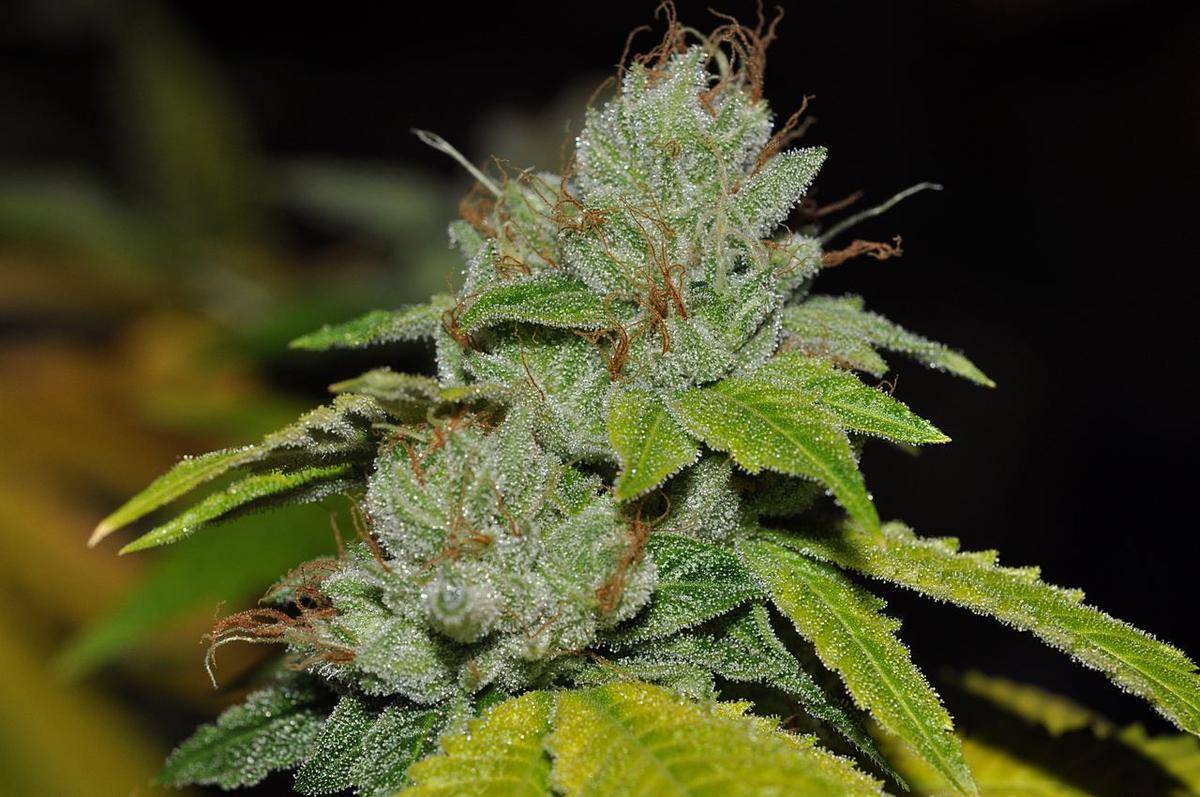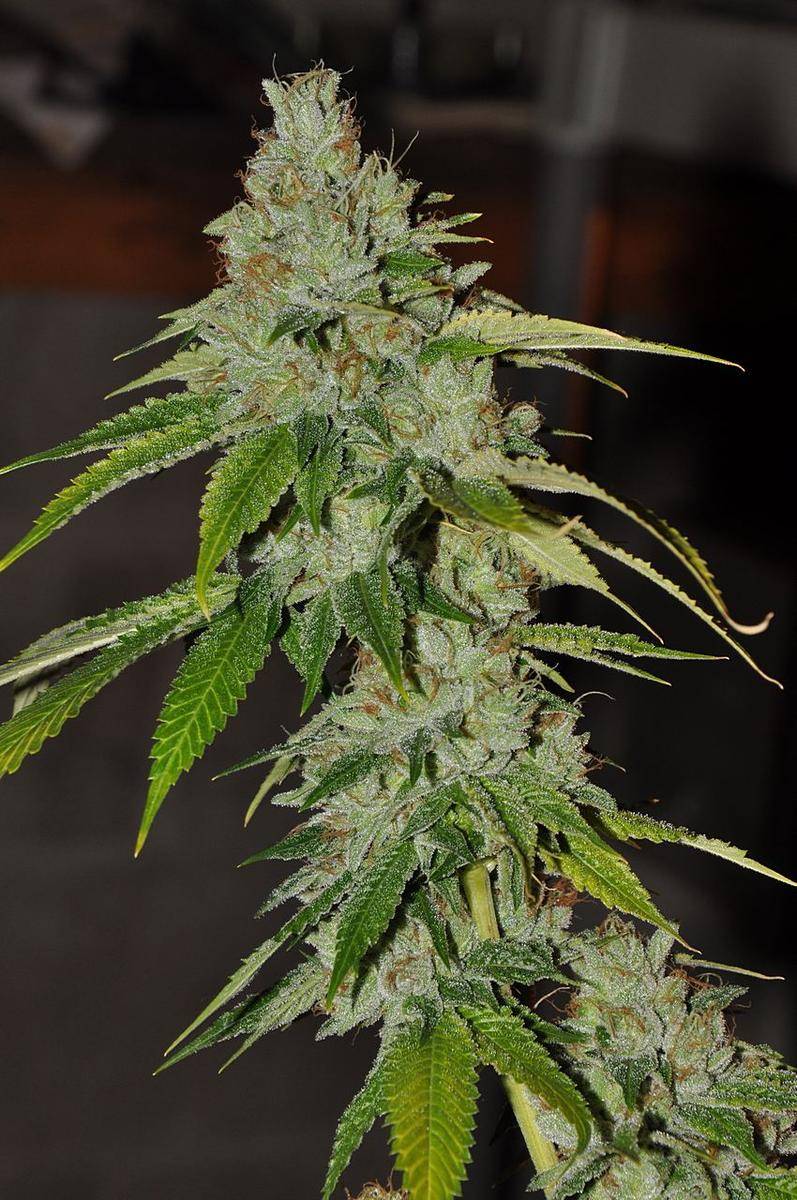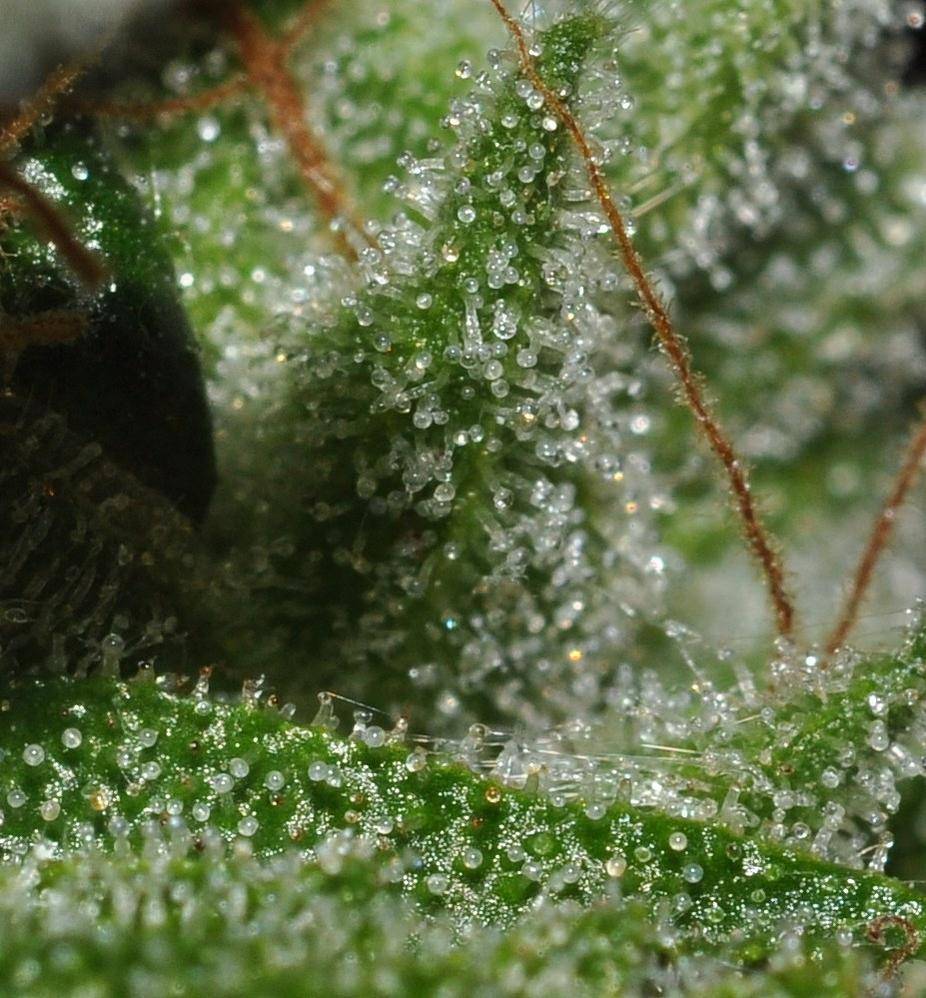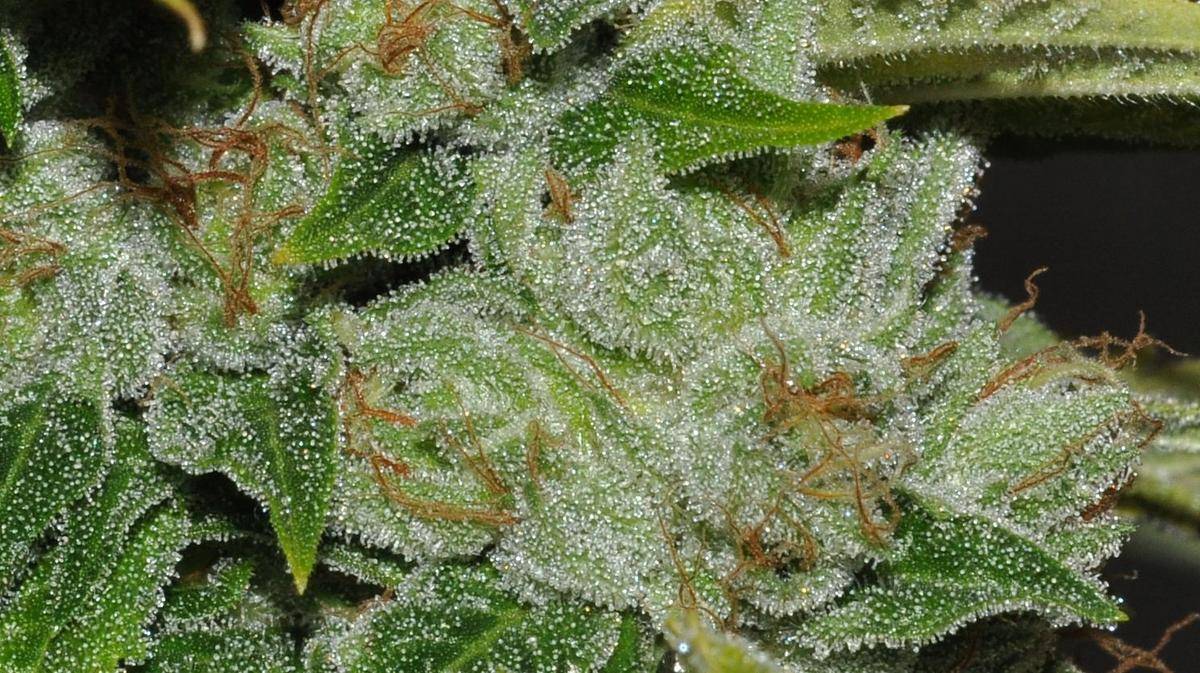Hello all. 
This is the lemon lollipop-flavored SFV OGKush clone, grown organically. The soil's base was Pro-Mix in this case, worm castings were added, some large curd perlite, dolomite lime, and inoculated with mycorrhizae.
For food, all I add is bat and seabird guano, dry, as a top dressing. In this way all I ever have to do is add water, and that's all. The benefit of this method is the ability to reduce the available food source to the plant before harvest, meaning the soil becomes lean from lack of decomposing organic matter, therefore reducing the amount of available minerals and salts at harvest time, when you don't want the plant having access to these elements. The fewer available minerals and salts in the medium at harvest time, the better the smoke will be. After tending to thousands of plants on an individual, intimate basis, I've come to know this as a fact. Salts and minerals in dry bud = fire retardants = not ideal.
The GREAT majority of herb, even what's called "killer weed", is not harvested under ideal circumstances, IMO.
Case in point... even truly organic weed, grown outdoors with ZERO fertilizer amendments whatsoever, can be harsher than is needed. Some of the best and the WORST pot I've ever smoked was grown outdoors, without amendments. The best was grown between two pine groves, in a very sandy, poor soil. ZERO food was given. Some of the worst weed was also grown outdoors, with ZERO food added, in very rich soil on the edge of a swamp. The pot grew HUGE, but tasted like crap. Why did the poor soil plant turn out so great, while the plant by the swamp, with so much available, organic material taste so bad? TOO MUCH SALT AND MINERAL AVAILABLE IN THE SOIL AT THE TIME OF HARVEST.
This has been demonstrated over and over to me as I tended these thousands of plants over the years. Every time there was too much available salt and mineral in the medium (organic or not), the smoke turned out less than perfect. The more salt and mineral, the worse the smoke is.
So what you see here is an SFV OGKush grown in a very lean organic soil, lean enough to be almost completely depleted of available salts and minerals by harvest, yielding plants with very little salt/mineral content. You can see by the even yellowing in the leaves, that this process of slat/mineral depletion is well under way. These plants are in their final stage, what some call the "Flush" period. In the case of this particular style of growing, the flush simply means I withhold the guanos long enough so that the microherd (fungi, bacteria, etc) eats its way through the last dose of guanos, and finds itself without a substantial source of organic matter to break into salts and minerals... therefore creating a "starvation effect".
Clean, tasty, organic herb.
or⋅gan⋅ic
/ɔrˈgænɪk/ Show Spelled Pronunciation [awr-gan-ik] Show IPA
–adjective
1. noting or pertaining to a class of chemical compounds that formerly comprised only those existing in or derived from plants or animals, but that now includes all other compounds of carbon.
2. characteristic of, pertaining to, or derived from living organisms: organic remains found in rocks.





This is the lemon lollipop-flavored SFV OGKush clone, grown organically. The soil's base was Pro-Mix in this case, worm castings were added, some large curd perlite, dolomite lime, and inoculated with mycorrhizae.
For food, all I add is bat and seabird guano, dry, as a top dressing. In this way all I ever have to do is add water, and that's all. The benefit of this method is the ability to reduce the available food source to the plant before harvest, meaning the soil becomes lean from lack of decomposing organic matter, therefore reducing the amount of available minerals and salts at harvest time, when you don't want the plant having access to these elements. The fewer available minerals and salts in the medium at harvest time, the better the smoke will be. After tending to thousands of plants on an individual, intimate basis, I've come to know this as a fact. Salts and minerals in dry bud = fire retardants = not ideal.
The GREAT majority of herb, even what's called "killer weed", is not harvested under ideal circumstances, IMO.
Case in point... even truly organic weed, grown outdoors with ZERO fertilizer amendments whatsoever, can be harsher than is needed. Some of the best and the WORST pot I've ever smoked was grown outdoors, without amendments. The best was grown between two pine groves, in a very sandy, poor soil. ZERO food was given. Some of the worst weed was also grown outdoors, with ZERO food added, in very rich soil on the edge of a swamp. The pot grew HUGE, but tasted like crap. Why did the poor soil plant turn out so great, while the plant by the swamp, with so much available, organic material taste so bad? TOO MUCH SALT AND MINERAL AVAILABLE IN THE SOIL AT THE TIME OF HARVEST.
This has been demonstrated over and over to me as I tended these thousands of plants over the years. Every time there was too much available salt and mineral in the medium (organic or not), the smoke turned out less than perfect. The more salt and mineral, the worse the smoke is.
So what you see here is an SFV OGKush grown in a very lean organic soil, lean enough to be almost completely depleted of available salts and minerals by harvest, yielding plants with very little salt/mineral content. You can see by the even yellowing in the leaves, that this process of slat/mineral depletion is well under way. These plants are in their final stage, what some call the "Flush" period. In the case of this particular style of growing, the flush simply means I withhold the guanos long enough so that the microherd (fungi, bacteria, etc) eats its way through the last dose of guanos, and finds itself without a substantial source of organic matter to break into salts and minerals... therefore creating a "starvation effect".
Clean, tasty, organic herb.
or⋅gan⋅ic
/ɔrˈgænɪk/ Show Spelled Pronunciation [awr-gan-ik] Show IPA
–adjective
1. noting or pertaining to a class of chemical compounds that formerly comprised only those existing in or derived from plants or animals, but that now includes all other compounds of carbon.
2. characteristic of, pertaining to, or derived from living organisms: organic remains found in rocks.



